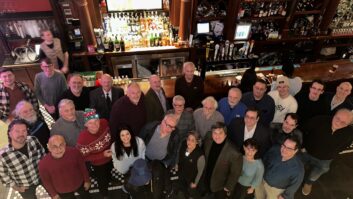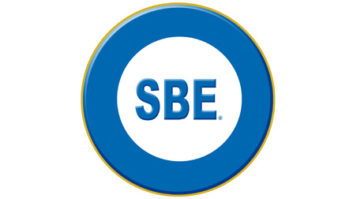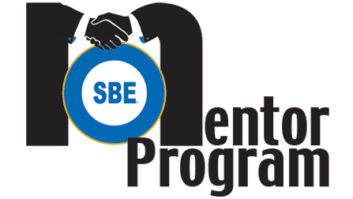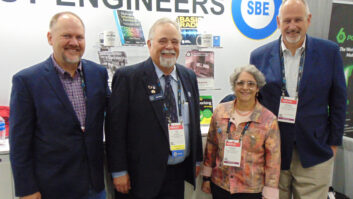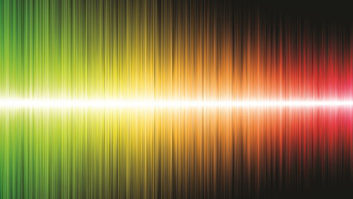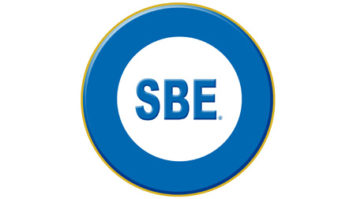Cliff White is the 2016 winner of the John H. Battison Founder’s Scholarship, awarded by the SBE Ennes Educational Foundation. We profile him in a Q&A here. His opinions are his own and do not necessarily reflect those of the SBE.
�
Radio magazine:You got into ham radio at a young age. Who introduced you to this hobby, and at what age did you get your Amateur Extra Class license? Is this still an active interest?
Cliff White: I think I was 14 when I got into amateur radio. I had a neighbor that has been a ham for longer than I’ve been around. I remember thinking “this is pretty cool!” when I saw his station, and I took off from there. I had my extra class license within a month or two of becoming a ham.
�
As one of the younger hams in my local club, many of the old-timers would give me their broken equipment that had been sitting in the attic. I would clean them up, study how they worked, and, usually, fix them. I learned a large portion of my electronics knowledge in this way (and ended up with a lot of nice equipment � although I’m a still a little jealous of the other Ennes winner, who’s a Collins collector).
�
I am still involved with amateur radio, although not as much as I’d like to be because of school, work, etc. I’m the president of the ham club at my school (W5LET, if you happen to hear us on the air) and just recently finished rebuilding our station (TS-830S/SB-220, for the hams).
�
Radio:Who told you about the Ennes Educational Foundation scholarships? Did you already know about the SBE, or was this your introduction?
White: I don’t remember exactly. I’ve been a student member of the SBE for several years, so I probably heard about it because of that.
�
Radio: What year are you in school?
White: I�m just now starting my junior year.
Radio: You�re majoring in electrical engineering at LeTourneau University in Longview, Texas. How did you settle on that path, and how will it relate to the career you want to pursue?
White: I originally choose electrical engineering because it seemed the logical thing to do with my radio/electronics interest. Looking back, I see that those two do not actually have much in common. Most of what is taught in electrical engineering programs is theoretical and/or mathematical.
�
While LeTourneau does offer much more hands-on and lab experience than many other schools, it’s certainly not the same as a year or two digging through transmitters. I’m curious to find out how it will work into my career as well! I’ve seen God do a number of things to put me on a certain path, but right now I’m not sure where that’s going to end up.
�
Radio:Do you belong to any student or professional organizations, or participate in any extracurricular activities related to broadcast engineering?
White: I�m a student member of the SBE, and I attend local meetings of the DFW and Shreveport chapters when I can. And while not specifically broadcast related, I am involved with the LeTourneau University Amateur Radio Club. And when school is out I work as a (mostly radio) broadcast engineering consultant.
�
Radio: Any advice for other students who might be interested in radio or TV broadcasting?
White: Get an amateur license and attend meetings of your local ham radio club. Several of the members will probably be broadcast engineers, and you can learn a lot even from the ones that aren’t. Ask them if you can follow them around at the station for a day (or longer � I spent an entire summer volunteering with Radio Esperanza; that experience is invaluable).
�
Attend local SBE meetings, if there’s a chapter in your area. Almost all the guys there will be thoroughly excited to see young people.
�
Find an old copy (the older the better � mine are from the ’60s) of something like the ARRL’s handbook and study it.
�
Buy old, broken radios or electronics that are simple enough to fix and fix them! You’ll learn a lot about how they work in the process.
�
Finally, don’t go to an engineering school if want to get into broadcasting without a good bit of practical experience first. In fact, a proper engineering degree is often an over-qualification for the broadcast industry. In short, don’t be afraid to learn things yourself and get into groups where you can meet contacts in the industry.
�
Radio: How are you spending your summer?
White: I took several summer classes this summer and worked part time as a consulting engineer.
�
Radio: What�s your favorite part of working in this field?
White:The challenges! Every situation is different and interesting. One day I might be working on automation software at a low power FM station with a 100 watt transmitter, the next I might be cleaning up lightning damage inside a 25 kilowatt tube transmitter, and the next I might be trying to figure out why the ground system of a directional AM array is shocking everyone who touches it. Every situation is unique and presents its own set of problems to overcome. Oh, and on top of that, I’m working against the clock to get them back on the air as soon as possible.





